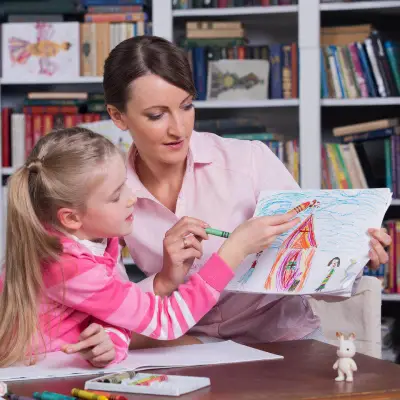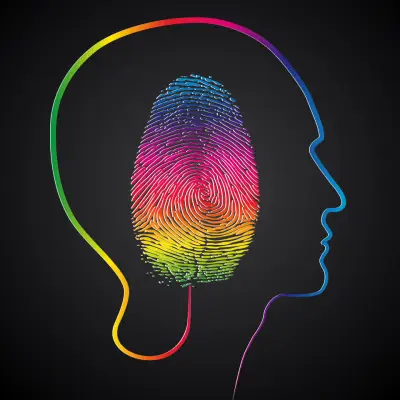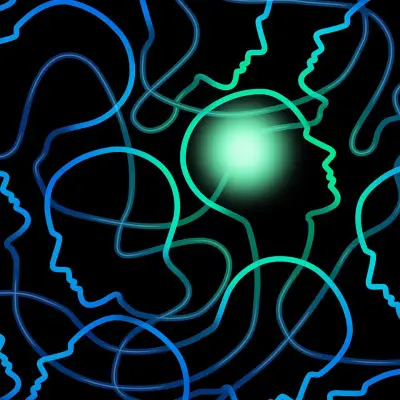Detachment in relationships often seems counterintuitive. After all, relationships are about connections, aren't they? However, understanding and practising detachment can lead to healthier and more fulfilling relationships.
Let's explore the law of detachment, detachment meaning, and practical steps on how to detach in a way that fosters love and respect.
Jump to:
What is Detachment?

Detachment is the process of letting go of your emotional dependency on others. It's not about becoming cold or indifferent; rather, it's about finding a balance where you can love and care for someone without losing yourself in the process. This balance is essential in maintaining healthy relationships and personal well-being.
The Law of Detachment Meaning
The law of detachment suggests that to truly connect with someone and experience love freely, we must learn to let go of our attachments to the outcome. It means embracing uncertainty and accepting that we cannot control others or the future. This law is fundamental in creating space for genuine connections.
Why Practising Detachment is Important
Detachment allows relationships to flourish in a healthy, supportive environment. It reduces dependency, fosters personal growth, and helps in dealing with conflicts more constructively. By practising detachment, you're not just enhancing your relationships but also contributing to your personal development.
How to Practice Detachment in 5 Simple Steps

Practising detachment, when done correctly, offers a pathway to healthier and more fulfilling connections. Here are actionable steps on how to master detachment in relationships, fostering love, respect, and growth without losing the essence of what makes these connections valuable:
1. Redefine Your Emotional Connection
Understand that to detach from someone, especially someone close, you must reshape how you emotionally engage with them. This involves prioritising your own needs and happiness, setting healthy boundaries, and focusing on your personal growth. It's about finding a balance where you can love and care for someone without losing yourself in the process.
Learning how to master emotional detachment helps you maintain inner peace while still valuing meaningful connections. By embracing the law of detachment, you allow relationships to unfold naturally, releasing the need for control and trusting that what is meant for you will remain without force or attachment.
2. Develop Mindful Detachment
Mindful detachment requires you to take a step back and observe your thoughts and emotions without judgment. This can be achieved through practices like mindfulness and meditation, which help you become more aware of your inner self without being overwhelmed by emotions tied to your relationships. Regularly dedicating time to mindfulness practices can significantly enhance your ability to detach in a healthy way.
3. Love with Detachment
Detaching with love means caring for someone while accepting both your autonomy and theirs. This is achieved by loving freely without the need to change or control the other person. Key to maintaining a loving detachment is communication and respect, ensuring that both individuals can grow independently yet remain emotionally connected.
Learning how to lovingly detach allows you to set healthy boundaries while maintaining compassion and understanding. Detachment with love is not about withdrawing affection but about developing a balanced connection that nurtures personal freedom and emotional well-being.
4. Navigate the Process of Letting Go
Letting go of someone who doesn't want you is a painful but necessary step in practising detachment. It requires acceptance of the situation, a strong sense of self-love, and the courage to move forward. Embracing detachment in this context opens you up to the right kind of love—one that respects your individuality and freedom.
Understanding how to detach from someone involves recognising when a relationship no longer serves your well-being and prioritising your emotional health. Developing emotional detachment in a relationship allows you to let go with grace, focusing on self-growth rather than clinging to what no longer aligns with your happiness.
5. Embrace Personal Growth
View detachment as a means to further your own personal development. Use the space and independence it provides to explore new interests, cultivate self-awareness, and strengthen your sense of self. This approach enriches the quality of your relationships.
Prioritising emotional detachment in relationships allows you to maintain a healthy balance between connection and individuality. Learning how to practice detachment from someone enables you to focus on self-improvement while fostering relationships that are built on mutual respect and personal freedom.
Addressing Challenges in Detachment

Detachment in relationships can present unique challenges, especially when it involves emotional detachment or detaching from a narcissist. Understanding these challenges and knowing how to address them helps maintain your emotional health and well-being:
Recognising Emotional Detachment
Emotional detachment can serve as a protective shield, guarding against pain and disappointment. However, when this detachment stems from unresolved issues or fears, it can hinder the depth and quality of relationships. It's important to recognise the fine line between healthy detachment, which promotes autonomy and growth, and unhealthy emotional detachment, which can lead to feelings of isolation and disconnection.
By reflecting on your emotional responses and the motivations behind your detachment, you can understand and heal the underlying issues, moving towards more balanced and fulfilling relationships.
Detaching from a Narcissist
Detaching from a narcissist involves navigating a complex and often painful dynamic. Narcissistic relationships can leave you feeling drained, undervalued, and emotionally exhausted. To detach from a narcissist, it's essential to recognise the toxic patterns and understand that these dynamics are not conducive to healthy, reciprocal relationships.
Establishing firm boundaries is the key; it signals to the narcissist that their manipulative behaviours are no longer effective. Seeking support from friends, family, or professionals can provide the strength and perspective needed to prioritise your well-being.
Building Resilience Through Detachment
Learning to detach with love and respect enhances your resilience in relationships. This allows you to navigate the ups and downs of connections with a sense of peace and stability. Building resilience involves practising self-care, maintaining a support network, and focusing on personal growth. It also means learning to view challenges as opportunities for learning and development rather than threats to your happiness or self-worth.
The Role of Forgiveness in Detachment
Forgiveness plays a key role in the process of detachment. It involves letting go of resentment and anger towards those who have hurt you, which can be particularly challenging in relationships fraught with manipulation or neglect.
However, forgiveness is more about freeing yourself from the burden of negative emotions than condoning the actions of others. By embracing forgiveness, you open the door to healing and peace, making it easier to detach from toxic dynamics and move forward with a lighter heart.
Cultivating Self-Love and Independence
At the core of healthy detachment lies a strong sense of self-love and independence. Cultivating these qualities ensures that your happiness and self-worth are not overly dependent on the approval or actions of others.
This involves engaging in activities that nourish your soul, affirming your value, and setting goals that reflect your passions and interests. When you love and value yourself, detaching from unhealthy relationships becomes a natural step towards preserving your well-being and pursuing a life of fulfilment and joy.
The Time It Takes to Detach
Detaching from someone can take time and varies from person to person. It's a process that involves healing, understanding, and gradually rebuilding your sense of self. Be patient with yourself and trust that with time, detachment will bring clarity and peace.
Frequently Asked Questions about Relationship Detachment
Can practising detachment improve every type of relationship?
Practising detachment can positively impact various types of relationships, including romantic partnerships, friendships, and family dynamics. By fostering independence and respecting individuality, detachment encourages healthier interactions and mutual growth.
How do I communicate my need for detachment without hurting my partner's feelings?
Communication is key. Express your intentions clearly and kindly, focusing on your need for personal growth and space rather than what you feel is lacking in them. Emphasise that detachment is about enhancing the relationship and not a sign of diminishing affection.
Is it possible to practice detachment if I'm very emotionally attached to someone?
It is possible, though it may require more effort. Start with small steps, like focusing on your hobbies and interests outside of the relationship. Practice mindfulness to observe your attachment patterns without judgment, gradually working towards a balanced emotional state.
How can I tell if I'm practising healthy detachment or just avoiding emotional intimacy?
Healthy detachment involves being emotionally present in a relationship while maintaining your sense of self. If you're avoiding emotional intimacy, you might feel disconnected or unwilling to engage in deeper conversations. Reflect on whether you're balancing closeness with personal freedom or simply withdrawing from emotional exchanges.
What should I do if I find detachment challenging because of past relationship traumas?
Seeking support from a therapist or counsellor can be incredibly beneficial. They can help you navigate your feelings, understand your attachment patterns, and develop strategies for practising healthy detachment. Additionally, self-care and mindfulness practices can support your emotional healing journey.
How does detachment relate to trust in a relationship?
Detachment and trust are closely linked. Practising detachment involves trusting your partner and yourself enough to allow for autonomy and growth. It's about believing in the strength of your connection without the need for constant reassurance or control.
Are there any signs that I'm becoming too detached in my relationship?
If you find yourself feeling indifferent towards your partner's feelings, experiences, or the relationship's outcomes, it may indicate excessive detachment. Healthy detachment should still allow for empathy, connection, and a desire for mutual happiness.
Can You Be Detached and Still Love Someone?
Detachment, when practised with love, allows you to appreciate and care for someone without losing sight of your own needs and happiness. It's about loving freely, without attachment to control or outcomes, and it's a testament to the strength and maturity of your love.
Recommended for you!
Best SellersEmpower Your Relationships with Centre of Excellence
Wondering how to learn detachment easily and efficiently? Deepen your understanding of relationships through our Relationship Psychology Diploma Course, crafted to provide insights into the dynamics of detachment, love, and emotional well-being.
Why Choose Centre of Excellence?
- Accessibility: We believe education is a right, not a privilege. That's why we've priced our courses to be as inclusive as possible, ensuring that everyone has the opportunity to learn and grow.
- Flexibility: Our courses are designed with your lifestyle in mind. Learn at your own pace, on your own schedule, and integrate your learning seamlessly into your everyday life.
- Comprehensive Curriculum: Covering a broad spectrum of topics related to relationship psychology, our course is tailored to meet a variety of interests and support your journey towards understanding and practising healthy detachment.
- Dedicated Support: Enrolment includes access to personalised tutor support and an engaging community of learners. You're never alone on your educational journey—we're with you every step of the way.
Special Invitation
We're delighted to offer our Relationship Psychology Diploma Course at an exclusive discounted rate of £29 for a limited time, saving you over £100!













